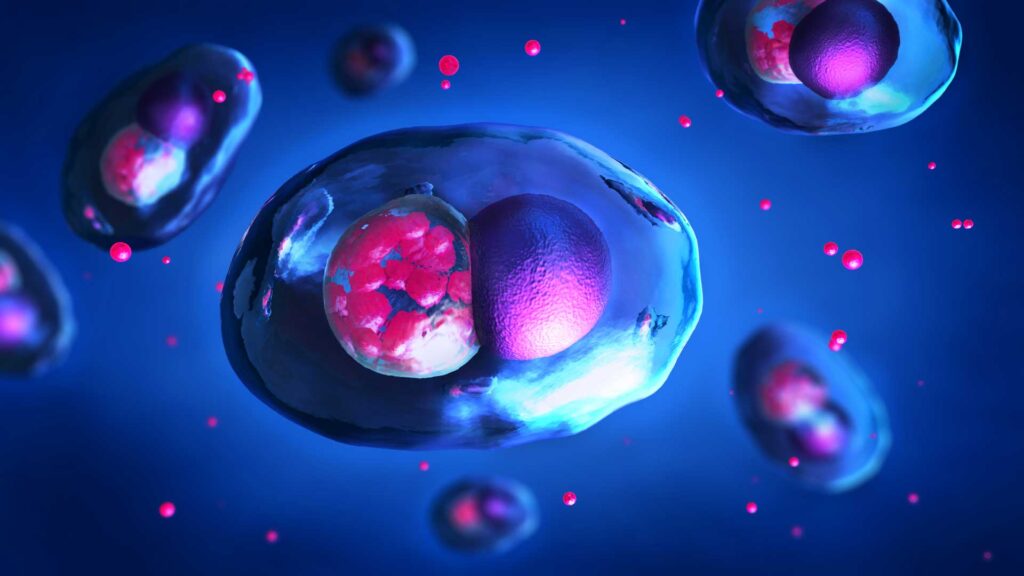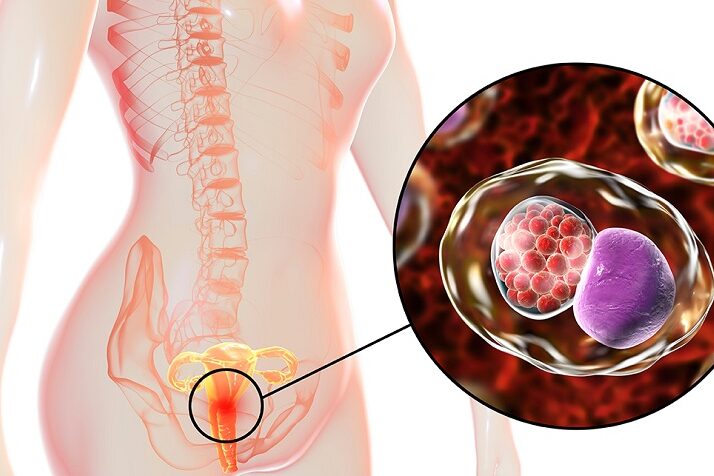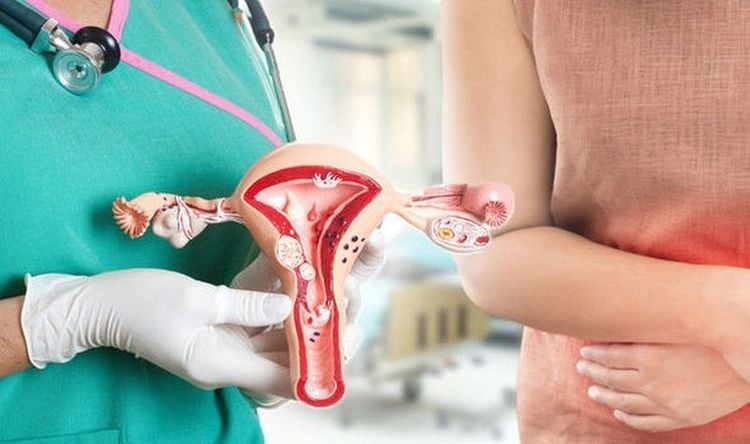Chlamydia is one of the most common yet often overlooked sexually transmitted infections (STIs) in the world. Despite its widespread prevalence, many individuals—especially women—are unaware that they have it due to its tendency to be asymptomatic.

This silent characteristic of chlamydia allows the infection to progress, sometimes leading to serious health consequences, such as infertility, chronic pelvic pain, and increased vulnerability to other infections.
In this comprehensive guide, we will delve deeply into the nature of chlamydia, how it’s transmitted, the symptoms to look out for, and the importance of early testing and treatment.
Whether you’re concerned about your sexual health or just looking for accurate information on how to protect yourself, this guide will walk you through everything you need to know about chlamydia—starting with the importance of recognizing the early signs and symptoms.
The Silent Threat of Chlamydia

Chlamydia is notorious for being one of the “silent” infections, meaning most people who contract it may not experience any immediate or obvious symptoms. According to the CDC, approximately 70-90% of women and about 50% of men with chlamydia show no symptoms, making it one of the most underdiagnosed STIs.
Why Does This Matter?

When chlamydia goes undetected, it can persist for months or even years, gradually causing irreversible damage to your reproductive system. Women, in particular, are at high risk of developing complications like pelvic inflammatory disease (PID), which can lead to chronic pain, difficulty conceiving, or even life-threatening ectopic pregnancies.
Without testing, it’s easy for chlamydia to go unnoticed until it’s too late.
The Anxiety Surrounding STIs
The mere thought of having an STI like chlamydia can provoke anxiety and fear. The stigma surrounding sexually transmitted infections often prevents individuals from seeking the necessary testing and treatment. Feelings of shame, guilt, or fear of judgment can deter someone from getting tested—even when they suspect they may have contracted the infection.
Additionally, misinformation about the symptoms of chlamydia (or the lack thereof) can lead many to underestimate their risk.
The Consequences of Untreated Chlamydia

When left untreated, chlamydia can wreak havoc on your health in ways that may not be immediately apparent. It’s a ticking time bomb, gradually escalating from a simple infection to severe health complications. These include but are not limited to:
1. Pelvic Inflammatory Disease (PID)
One of the most serious complications for women is PID. This occurs when the infection spreads to the uterus, fallopian tubes, and ovaries. Over time, it can cause scarring in the reproductive organs, leading to chronic pain and an increased risk of infertility.
2. Infertility and Ectopic Pregnancy
Chlamydia can cause blockages in the fallopian tubes, preventing an egg from traveling normally. This can result in infertility or ectopic pregnancies—when a fertilized egg implants outside the uterus, typically in the fallopian tube. Ectopic pregnancies are life-threatening and require immediate medical intervention.
3. Increased Risk of Other STIs
Chlamydia can weaken the immune system, making it easier for other infections, including HIV, to take hold. Studies have shown that individuals with chlamydia are at higher risk of contracting other sexually transmitted infections due to compromised mucous membranes and inflammation.
4. Transmission to Newborns
Pregnant women who are infected with chlamydia risk passing the infection to their baby during childbirth. This can lead to severe eye infections, pneumonia, and other complications in newborns.
These consequences illustrate why ignoring chlamydia—or delaying testing—can have long-lasting impacts on your health. The stakes are high, and early intervention is crucial.
Chlamydia Symptoms: What to Look Out For

While the absence of symptoms is common, it is still important to be aware of the potential signs of chlamydia in both women and men. If you experience any of these symptoms, getting tested immediately is crucial.
1. Chlamydia Symptoms in Women

- Unusual Vaginal Discharge: A change in color, consistency, or odor of vaginal discharge could be a sign of infection. The discharge may be yellowish or have an unusual smell.
- Burning Sensation During Urination: This is one of the most common early signs. If you feel pain, discomfort, or a burning sensation while urinating, it could indicate chlamydia or another STI.
- Pain During Intercourse: Painful sex, particularly deep penetration, may indicate that the infection has spread to the reproductive organs.
- Bleeding Between Periods: Spotting or bleeding when you’re not menstruating could signal cervical inflammation caused by chlamydia.
- Lower Abdominal Pain: This pain, often mistaken for menstrual cramps, could actually be a symptom of a spreading infection.
2. Chlamydia Symptoms in Men

- Discharge from the Penis: Men may notice an unusual discharge from the tip of the penis, which can be clear, cloudy, or yellowish.
- Burning Sensation During Urination: Similar to women, men may experience pain or discomfort when urinating.
- Pain and Swelling in the Testicles: This is a less common symptom but could indicate that the infection has spread to the testicles.
3. Throat and Rectal Infections
Chlamydia can also affect the throat (after oral sex) or rectum (after anal sex), leading to less obvious symptoms like:
- Sore Throat: If contracted through oral sex, chlamydia can cause throat irritation, though it’s often mild.
- Rectal Pain or Discharge: Anal exposure to chlamydia can result in pain, discharge, or bleeding from the rectum.
These symptoms may be subtle or mistaken for other conditions, but they are clear signs that you should get tested.
The Importance of Testing and Treatment
Given chlamydia’s asymptomatic nature and its potentially devastating long-term consequences, testing is the only reliable way to know whether you have the infection. Testing is simple, painless, and can prevent significant health issues down the line.

How Is Chlamydia Diagnosed?
Chlamydia testing is straightforward and can be done in two ways:
- Urine Test: You’ll provide a urine sample that’s tested for the presence of chlamydia bacteria.
- Swab Test: A healthcare provider may take a swab of your genital area (or rectum/throat, depending on the site of potential infection) to test for the bacteria.
In either case, testing is quick, confidential, and often covered by insurance or affordable through services like STDcheck.
Treatment for Chlamydia
If you test positive for chlamydia, treatment is simple: antibiotics. The most commonly prescribed antibiotics are azithromycin (a single dose) or doxycycline (a week-long course). It’s crucial to complete the entire course of antibiotics, even if symptoms disappear, to ensure the infection is fully eradicated.
Your sexual partner(s) should also get tested and treated to prevent re-infection. Additionally, it’s essential to abstain from sexual activity until both you and your partner(s) have completed treatment.
Understanding Chlamydia Transmission: How It Spreads
Chlamydia is primarily transmitted through sexual contact with an infected person. This includes vaginal, anal, and oral sex. The infection can also be passed from a pregnant woman to her baby during childbirth.
Who Is at Risk?
Chlamydia can affect anyone who is sexually active, but certain factors increase your risk:
- Having Multiple Sexual Partners: The more partners you have, the higher your risk of exposure.
- Unprotected Sex: Engaging in sex without a condom significantly increases the risk of transmission.
- Young Adults: Young people, especially those under 25, are at a higher risk of contracting chlamydia due to increased sexual activity and lower rates of condom use.
- History of STIs: If you’ve had a sexually transmitted infection before, you’re at greater risk of contracting chlamydia again.
Common Myths and Misconceptions About Chlamydia

There is a lot of misinformation surrounding STIs, which can lead to confusion and unnecessary anxiety. Here, we debunk some of the most common myths about chlamydia:
Myth 1: “I’d Know If I Had Chlamydia.”
As we’ve discussed, chlamydia is often asymptomatic, especially in women. Relying on symptoms to determine if you have chlamydia is risky.
Myth 2: “Chlamydia Isn’t a Big Deal.”
Chlamydia may not cause immediate discomfort, but untreated infections can lead to serious, long-term health consequences, including infertility and an increased risk of contracting other STIs.
Myth 3: “Only Promiscuous People Get Chlamydia.”
Anyone who is sexually active can get chlamydia, regardless of their number of partners. Even if you’re in a monogamous relationship, you could still be at risk if your partner has not been tested.
Myth 4: “I’m Safe Because I Use Condoms.”
While condoms significantly reduce the risk of chlamydia transmission, they are not foolproof. Chlamydia can be spread through any contact with infected mucous membranes, which may not be fully protected by a condom.
How to Protect Yourself from Chlamydia

Protecting yourself from chlamydia involves taking proactive steps to ensure your sexual health. Here are the most effective ways to reduce your risk:
1. Use Condoms Consistently
Using condoms correctly during vaginal, anal, and oral sex is one of the most reliable ways to prevent the transmission of chlamydia and other STIs. Consistent use significantly lowers your risk of exposure.
2. Get Regular STI Screenings
Routine STI testing is essential, especially if you’re sexually active with multiple partners or in a non-monogamous relationship. Early detection through regular screenings helps prevent complications and reduces the risk of unknowingly spreading the infection.
3. Limit Your Number of Sexual Partners
Reducing the number of sexual partners lowers your chances of exposure to STIs like chlamydia. The fewer partners you have, the easier it is to manage sexual health risks.
4. Communicate with Your Partner(s)
Honest conversations about sexual health with your partner(s) are critical. Make sure you both get tested before engaging in sexual activity and continue to maintain open communication about your sexual health status.
Why You Should Get Tested Through STDcheck

If you’re sexually active, especially if you have new or multiple partners, it’s crucial to get tested regularly for STIs like chlamydia. While testing may seem daunting, services like STDcheck make it easy, confidential, and convenient.
Benefits of STDcheck:
- Confidential Testing: Your privacy is a top priority. STDcheck ensures that your test results remain confidential, with no information shared with your insurance or placed on your medical record without your permission.
- Convenient Locations: With over 4,500 testing centers across the country, you’re likely to find a site close to you. Testing is quick, typically taking less than 10 minutes.
- Quick Results: Get your results in just 1-2 business days, so you can take the necessary steps promptly.
- Affordable: STDcheck offers competitive prices and flexible payment options. Many of their tests are also eligible for payment through health savings accounts (HSAs) or flexible spending accounts (FSAs).
Don’t wait—if you think you may be at risk or want peace of mind, schedule a test through STDcheck today. Early detection is the key to protecting your health and preventing long-term complications.
Chlamydia may be a silent infection, but its consequences are anything but. By understanding the symptoms, risks, and importance of testing, you can take control of your sexual health and protect yourself from long-term complications. If you suspect you may have been exposed to chlamydia, don’t wait—get tested through a reliable service like STDcheck tod
The Silent Epidemic: Why Awareness Matters
Chlamydia is often referred to as a “silent epidemic” because its subtle symptoms—or lack thereof—mean it can quietly spread through populations without notice.
According to the CDC, chlamydia is the most frequently reported bacterial STI in the United States, with millions of new infections occurring each year. Despite its prevalence, many people remain unaware of the risks, the ease of testing, and the necessity of regular screenings.
Why Is Chlamydia So Common?
Chlamydia’s asymptomatic nature is one of the key reasons why it’s so prevalent. Many individuals unknowingly carry the infection and continue to engage in sexual activity, potentially passing it on to their partners. Since the symptoms, when they do occur, are often mild or easily mistaken for other conditions, the infection can persist and spread through sexual networks before anyone realizes the severity of the situation.
Additionally, the lack of awareness about STIs, especially among younger populations, plays a significant role. Educational efforts often fail to emphasize the importance of routine testing, and social stigma surrounding STIs discourages many from seeking help.
The Role of Regular Testing in Controlling Chlamydia
Regular testing is the most effective way to control the spread of chlamydia. Since the infection is easy to diagnose and treat, routine screenings can prevent complications and reduce transmission rates. Yet, testing rates remain low, especially among younger individuals who are at the highest risk of contracting chlamydia.
By normalizing STI testing and making services more accessible, we can take significant steps toward reducing the number of new infections each year.
Complications of Untreated Chlamydia
The complications of untreated chlamydia can range from mild discomfort to severe, life-altering consequences. Understanding these risks is essential for encouraging early testing and treatment.
1. Pelvic Inflammatory Disease (PID)
As mentioned earlier, PID is one of the most severe complications of untreated chlamydia in women. It occurs when the infection spreads from the cervix to the upper reproductive organs, leading to inflammation and damage.
What Are the Symptoms of PID?
- Lower abdominal pain or tenderness
- Fever or chills
- Abnormal vaginal discharge with an unusual odor
- Pain or bleeding during sex
- Burning sensation during urination
- Irregular menstrual bleeding
If left untreated, PID can cause permanent damage to the fallopian tubes, leading to infertility. In severe cases, the infection can lead to an abscess in the fallopian tubes or ovaries, which may require surgical intervention.
2. Infertility
Chlamydia is one of the leading causes of infertility in women. The infection can cause scarring in the fallopian tubes, blocking the path for sperm to reach the egg. Even if conception occurs, the damage to the reproductive organs increases the risk of ectopic pregnancy.
3. Ectopic Pregnancy
An ectopic pregnancy occurs when a fertilized egg implants outside the uterus, usually in the fallopian tube. This is a life-threatening condition that requires emergency medical care. If left untreated, the growing embryo can cause the fallopian tube to rupture, leading to severe internal bleeding.
4. Chronic Pelvic Pain
Women with untreated chlamydia may experience chronic pelvic pain, even after the infection is resolved. This pain can be constant or intermittent and may worsen during menstruation or sexual activity.
5. Reactive Arthritis
In both men and women, untreated chlamydia can lead to reactive arthritis, a type of inflammatory arthritis triggered by the infection. Symptoms include joint pain and swelling, particularly in the knees, ankles, and feet. In some cases, it can also affect the eyes and urethra.
Chlamydia and Other STIs: A Dangerous Combination
Having chlamydia increases your risk of contracting other STIs, including HIV. Inflammation caused by chlamydia makes it easier for other infections to enter the body. Additionally, the presence of chlamydia in genital secretions can increase the likelihood of transmitting infections to sexual partners.
Chlamydia and Gonorrhea Co-Infections
It’s not uncommon for individuals to be infected with both chlamydia and gonorrhea at the same time. These two bacterial infections share similar transmission routes and risk factors, and testing for one often includes testing for the other. Co-infections can complicate treatment and increase the risk of complications, making early detection even more crucial.
How to Approach Chlamydia Testing with Confidence
Taking the step to get tested for chlamydia, or any STI, can feel intimidating. However, it’s one of the most important things you can do for your sexual health. The sooner you get tested, the sooner you can address any potential health issues and protect yourself and your partners from long-term harm.
Here are some tips for approaching chlamydia testing with confidence:
1. Break the Stigma
Remember that chlamydia is a common infection, and there’s no shame in being proactive about your health. Taking responsibility for your sexual health shows maturity and respect for both yourself and your partners.
2. Talk to Your Partner
If you’re concerned about chlamydia or other STIs, have an open conversation with your partner. Sharing your concerns and making a plan to get tested together can strengthen your relationship and build trust.
3. Choose Confidential, Convenient Testing
Services like STDcheck make it easy to get tested without the hassle. With confidential testing at thousands of locations, you can have peace of mind knowing that your health information is private and secure.
4. Know That Early Detection Is Key
The sooner you know your status, the sooner you can take action. If you test positive for chlamydia, treatment is simple and effective. If your test comes back negative, you’ll have the reassurance you need to continue practicing safe sex.
STDcheck: The Smart Choice for Chlamydia Testing
When it comes to getting tested for chlamydia, you want a service that’s reliable, confidential, and fast. That’s where STDcheck comes in. Offering comprehensive STI testing panels, including chlamydia, STDcheck makes it easy to get tested and get your results quickly.

Here’s why you should consider STDcheck for your next STI screening:
1. Discreet and Confidential
Your privacy is paramount. STDcheck ensures that your testing process is completely confidential, from the moment you book your appointment to the time you receive your results.
2. Nationwide Testing Locations
With over 4,500 testing locations across the U.S., finding a site near you is easy and convenient. You won’t have to travel far to get the answers you need.
3. Quick and Accurate Results
You’ll receive your test results within 1-2 business days, allowing you to take action immediately if needed. Early detection and prompt treatment are key to preventing long-term health issues, and STDcheck provides you with the information you need quickly.
4. Affordable Pricing
STDcheck offers affordable pricing for their tests, and you can choose to pay with a credit card, debit card, or even with health savings accounts (HSAs). They also accept many insurance plans, making testing accessible to everyone.
5. Comprehensive Testing Options
You can choose individual tests or opt for an all-in-one STI panel that includes chlamydia, gonorrhea, HIV, syphilis, and more. This ensures you’re fully covered, giving you peace of mind when it comes to your sexual health.
Your Health, Your Responsibility: Take Action Today
Sexual health is an essential aspect of overall well-being, yet it’s often overlooked or stigmatized. Chlamydia is a common and easily treatable infection, but without testing, it can silently damage your body over time. Don’t wait until it’s too late to take action.
By getting tested regularly and encouraging others to do the same, you can help reduce the spread of chlamydia and other STIs. If you’re concerned about your sexual health or want to stay on top of your well-being, visit STDcheck and take control of your health today.
Chlamydia may be silent, but its impact on your health is not. From infertility and chronic pain to increased risks of other infections, the long-term consequences of untreated chlamydia can be severe. The good news? Testing is simple, and treatment is highly effective.
Don’t let fear or stigma prevent you from knowing your status. Take the responsible step today and get tested through STDcheck. Early detection is the key to protecting your health and preventing complications down the line.
Your health matters—get tested, get treated, and stay safe.

See more here: